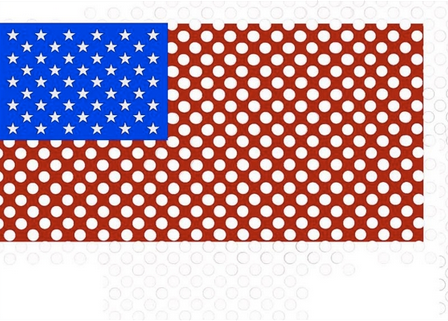I am loathe to give more oxygen to the Paul Henry saga but think that I have a fair idea of the chain of events that led to his suspension and possible sacking. This is due to my personal familiarity with him as a result of my appearances on the Breakfast show. Let me explain.
When I first started showing up on TVNZ after 9-11, I dealt with Mike Hoskings (and Ali Mau) on Breakfast and either Paul Holmes or Linda Clark in the evening news interview shows. The two men have big egos but are smart, do their homework, and are mentally quick on their feet. Linda Clark and Ali Mau are all of those things without the ego. Although they swapped slots from time to time and I also have spoken at some length with Peter Williams on and off-camera, it was Hoskings who ran the bulk of the Breakfast interviews with me, especially during the early days of the 2003 Iraq invasion.
Some years later Hoskings left Breakfast and I began to be interviewed by Paul Henry. He was initially circumspect, always polite and although not as studied as his predecessor, he seemed well-prepared (in part because I tend to give producers some talking points on the subject the night before the show). His only flaw was his tendency to talk over and interrupt while editorialising about the subject rather than allowing the interviewee (me) greater reign for in-depth analysis. But that, perhaps, is the nature of Breakfast TV, which world-wide is the shallow end of the TV news pool.
Something happened, though, during the last 3 or 4 years, at a time when I moved abroad. Henry began to crack jokes, some of dubious taste, and these jokes found resonance amongst his viewers. The more positive feedback TVNZ received, the more he continued to play the role of provocateur rather than newsperson. As ratings went up the TVNZ brass gave him more rope on which to swing his shtick–a rope that he has now hung himself with. Serious interviews were gradually replaced by often funny and not-so-funny ad libs on stories presented in the half hourly news updates. By 2010 Breakfast was a bit of a morning circus, with the female co-hosts serving as straight props for Mr. Henry’s increasingly schoolboy antics.
As John Minto has pointed out, Henry is a serial offender. This year alone he has disparaged on air  people because of their appearance, mental condition, surname and ethnicity (at least twice). In each instance he targeted an innate trait rather than some aspect of the individual’s behaviour. And each time complaints to the BSA and TVNZ about his comments resulted in no more than verbal admonishments from his bosses. In fact, it is now clear that there was much of a wink and nod to these supposed warnings.
Then, at the Qantas Media Awards, he used the People’s Choice award presentation to read out a profanity laced purported letter from a disgruntled viewer which again, had misogynist and homophobic references in it. The mostly Pakeha elite audience roared with laughter. That is the moment when Paul Henry decided he was bullet proof.
His sense of invulnerability was not only driven by high approval ratings. Every Monday he was given the opportunity to interview his ideologically kindred Prime Minister. Every Monday the interview finished with some quick banter between two self-satisfied “smart guys” riding high in the polls. Although what they believed passed for quick-witted repartee was more often banal and insipid, the seeds were sown in their exchanges for the infamous remarks about the Governor General this past Monday.
In effect, although the ultimate cause of his own downfall, Mr. Henry was aided, abetted and facilitated along the way by an array of celebrities, executives, “news” outlets, politicians and hangers-on who are running for cover now that his true nature has been exposed. A large swathe of the general public also played a role in his rise, and in the particular tone he adopted as his confidence in his own celebrity grew. He therefore has reason to be aggrieved. After all, a few weeks ago he was on stage basking in the glow of popular acclamation for doing precisely the things for which he is now suspended and vilified.
I do not think that he should be sacked. A long suspension yes, but if Tony Veitch can be returned to the airwaves after his crimes, then an uncloseted bigot surely can seek redemption. The viewing audience will be the ultimate judge of that. Whatever his long-term future in TV, at a minimum a long time off air while chasten and make Henry think twice before uttering pejoratives or ridicule. The time out of the limelight may force him into the type of self-reflection that could, in fact, make him a better presenter. Or not.
What I find most personally ironic is that I was fired and my academic career ruined for writing an intemperate and unprofessional email to a student in which I accused the student of using “some sort of Western liberal guilt” to weasel out of an assignment due date. Although I was subsequently proven correct in my suspicions that the excuse was a ruse that did in fact prey on my supposed liberal sentiments, I was vilified as a racist and kicked to the curb by Auckland University. The email (for which I immediately apologised, long before any disciplinary proceedings began) was wrong, to be sure, but the outrage, public defamation and punishment far exceeded the offense (sorry for whinging about this by way of comparison, but as you can see it really sticks in my craw and I have not quite gotten over it given the grief it has caused my partner and I).
TVNZ, on the other hand, encouraged Mr. Henry’s behaviour in spite of repeated complaints about it, something that was confirmed by the spokeperson’s initial statement that he merely said what others were too afraid to say. TVNZ apparently never gave him a formal written warning, or even a serious verbal warning. To the contrary. Until things hit the fan it repeatedly defended and encouraged his boorish behaviour because it was deemed profitable for him to do so.
Thus, from my perspective, the Unite union (and other self-righteous johnny-come-latelies like Peter Dunne) is wrong in demanding Mr. Henry’s sacking even if his “crime” is egregious, and even if he is not a union member. The reason is that  the precedent his sacking would set is worse than his individual transgressions. Of course, he may have an individual contract with TVNZ whereby he serves at the whim and discretion of the management, in which case he is well and truly at their mercy–whatever his contract status, this is a particularly bad time to be an unorganised worker facing managerial scrutiny given the thrust of National’s labour reform bill.
As much as it pains me to say so given the circumstances of this case, I think that the union movement should stay out of the debate or use it as a means of reminding workers that collective membership is the best defense against individual victimisation by management no matter how famous the worker may be. After all, the employment issue here is about Henry’s job performance given his contractual obligations and the terms and conditions therein, something that should not be susceptible to public pressure or managerial attempts at corporate face-saving.
For the unions the issue should be one of contractual obligation and due process, nothing more. In that sense the union position should be akin to the American Civil Liberties Union (ACLU) defending the right of neo-Nazis to free speech. It is the principle of due process rather than the inadmissible act that is the defendable issue. Paul Henry may be a loud-mouthed, bigoted, overpaid ignorant talking head buffoon, but at the end of the day he is a wage slave living high at the mercy of his corporate bosses. It was the TVNZ paymasters, not Mr. Henry, who dictated the on-air environment in which he spoke. At any time they could have reigned him in, disciplined him or otherwise cut short his propensity to vent divisive, hateful, prejudiced or otherwise rude comments. But they did not. Instead, they encouraged and facilitated him.
Now that the public reaction is adverse, TVNZ will allow him to twist in the winds of opprobrium while his bosses figure out how to best ride out the storm. But as a Herald columnist aptly phrased it, the fault is not just with the monkey, but with the organ grinder, and it is there where the real source of blame for this debacle needs to be focused. In other words, if heads are going to roll, they should roll high rather than low.


